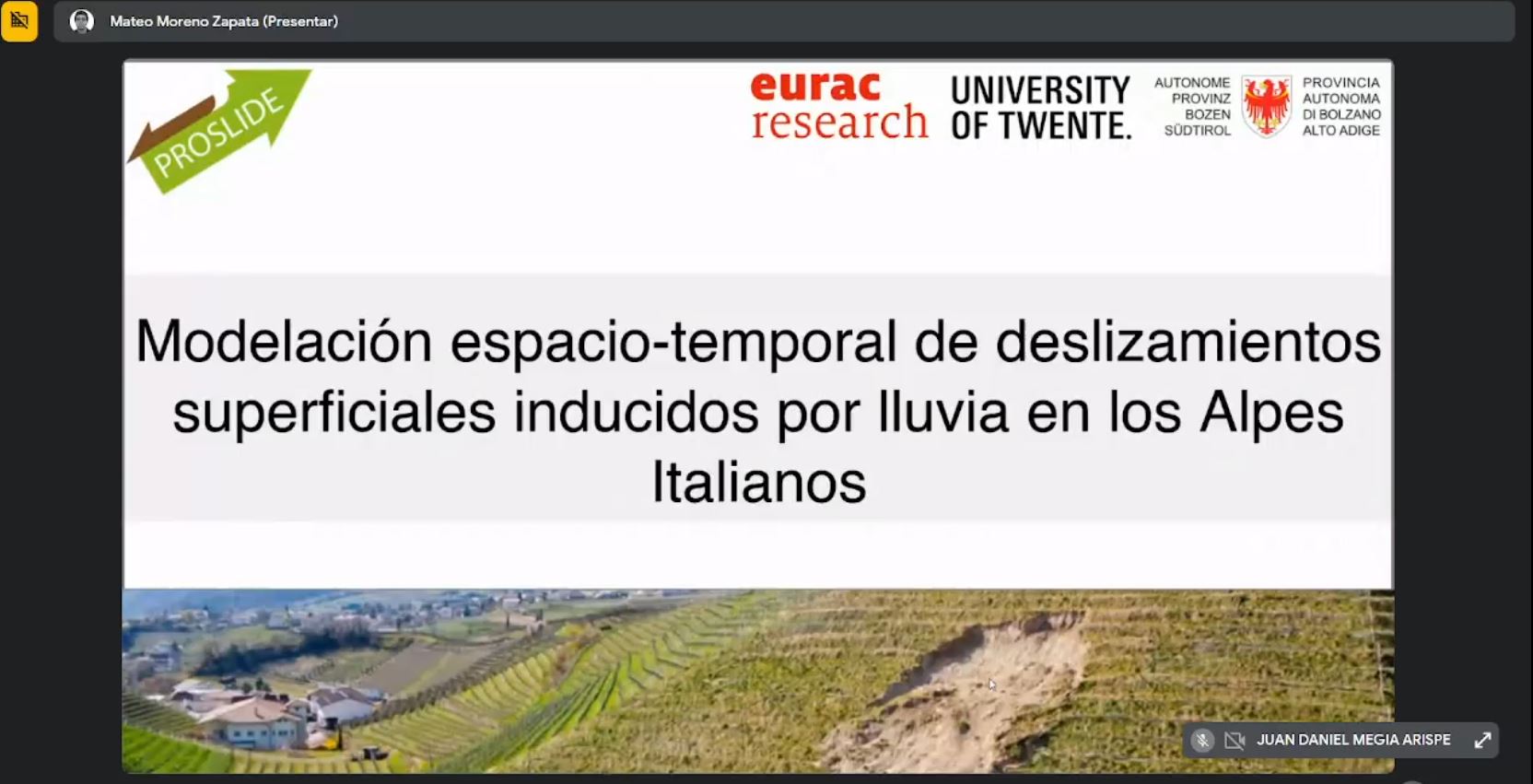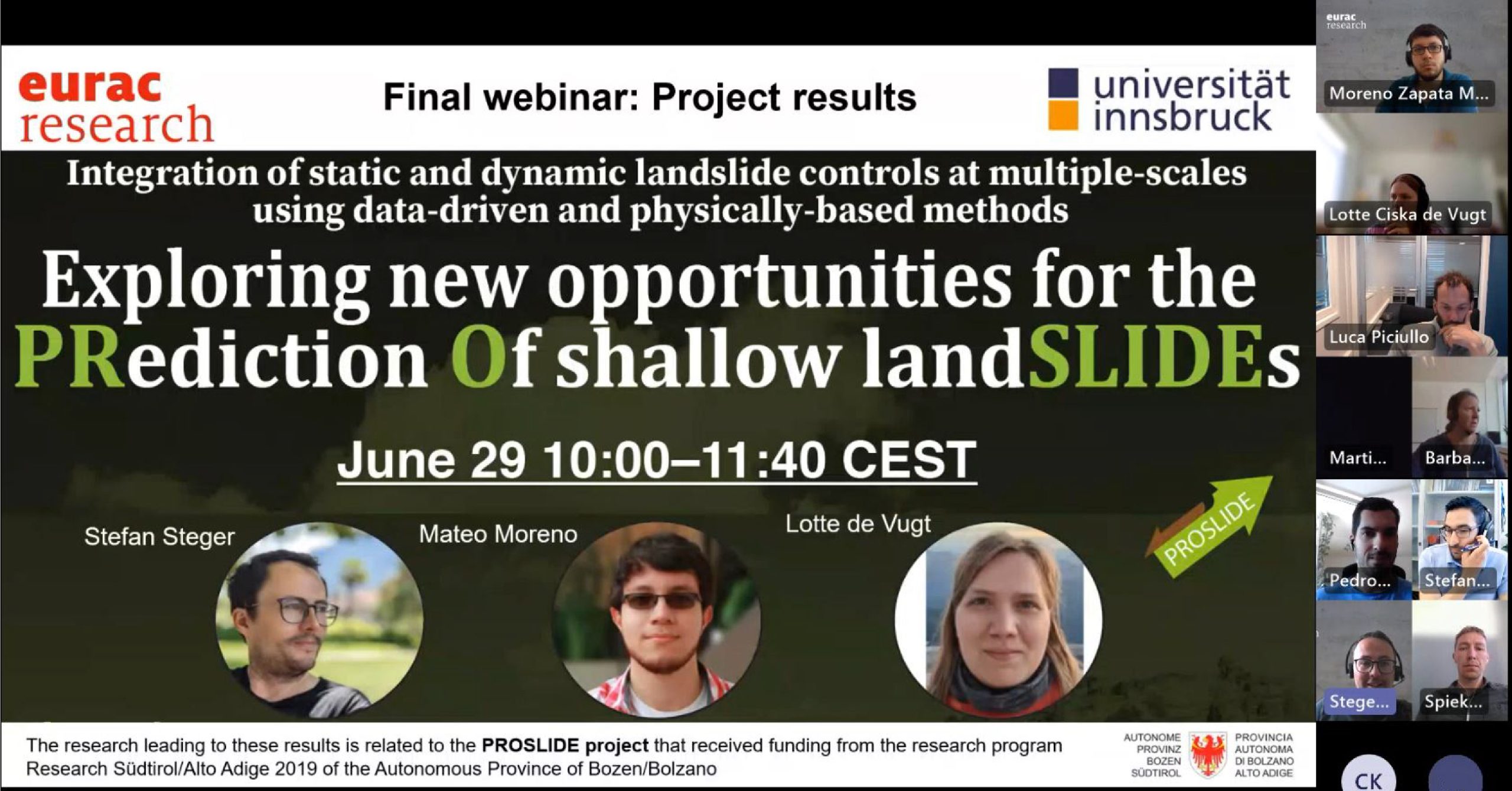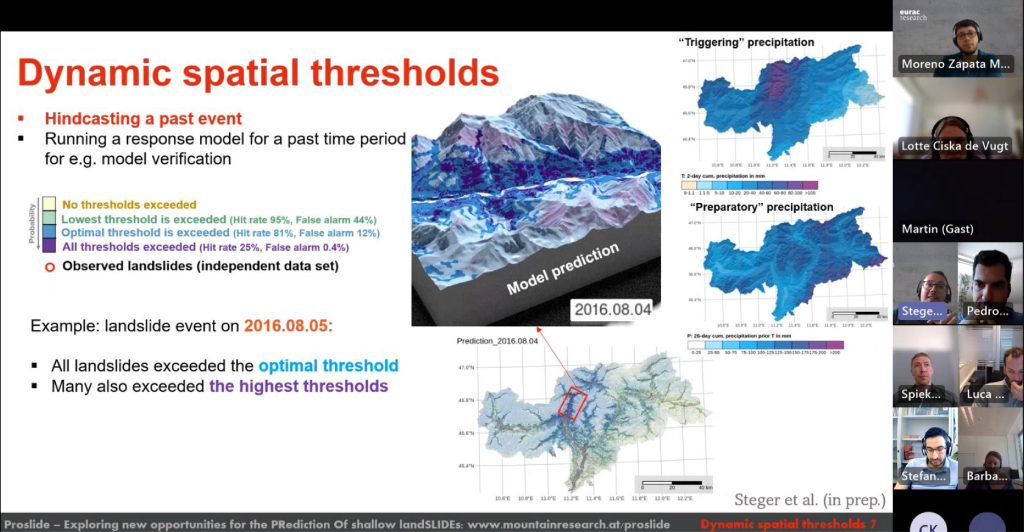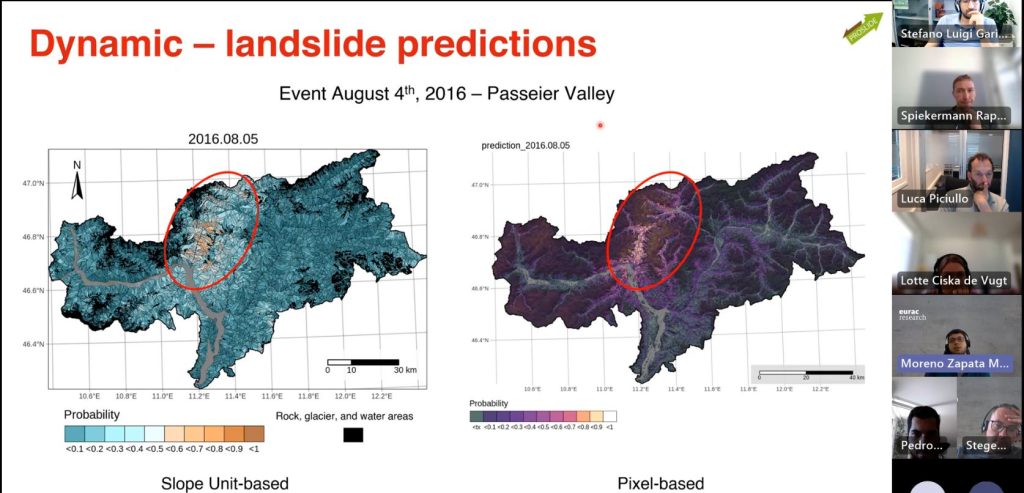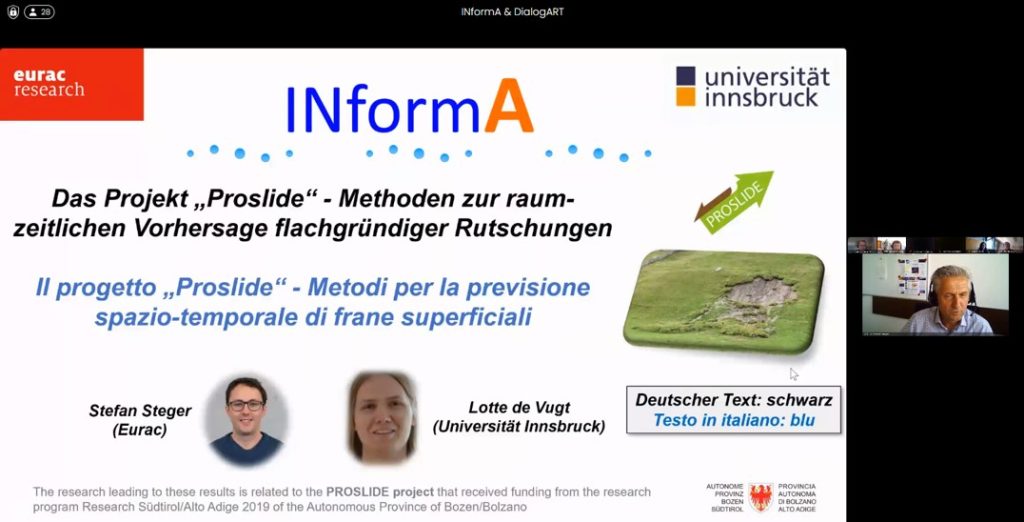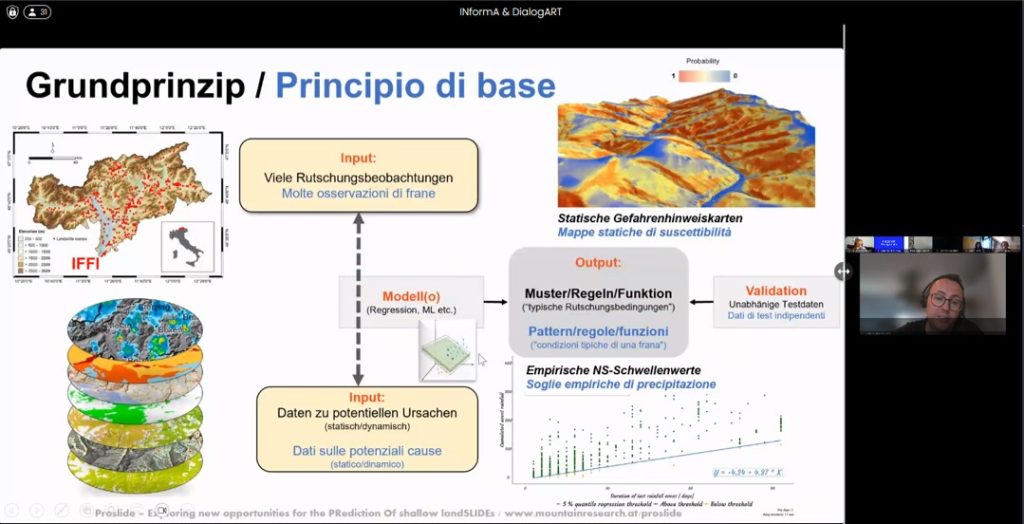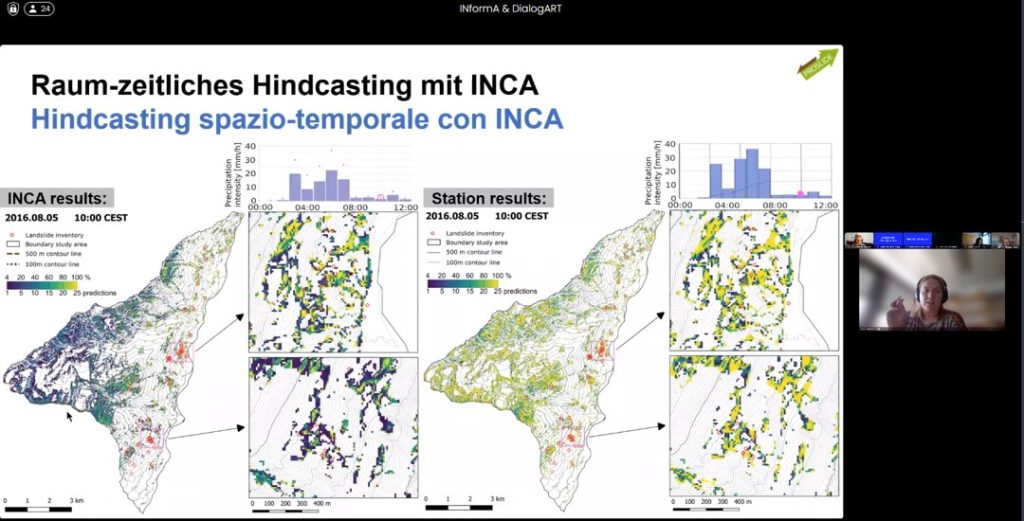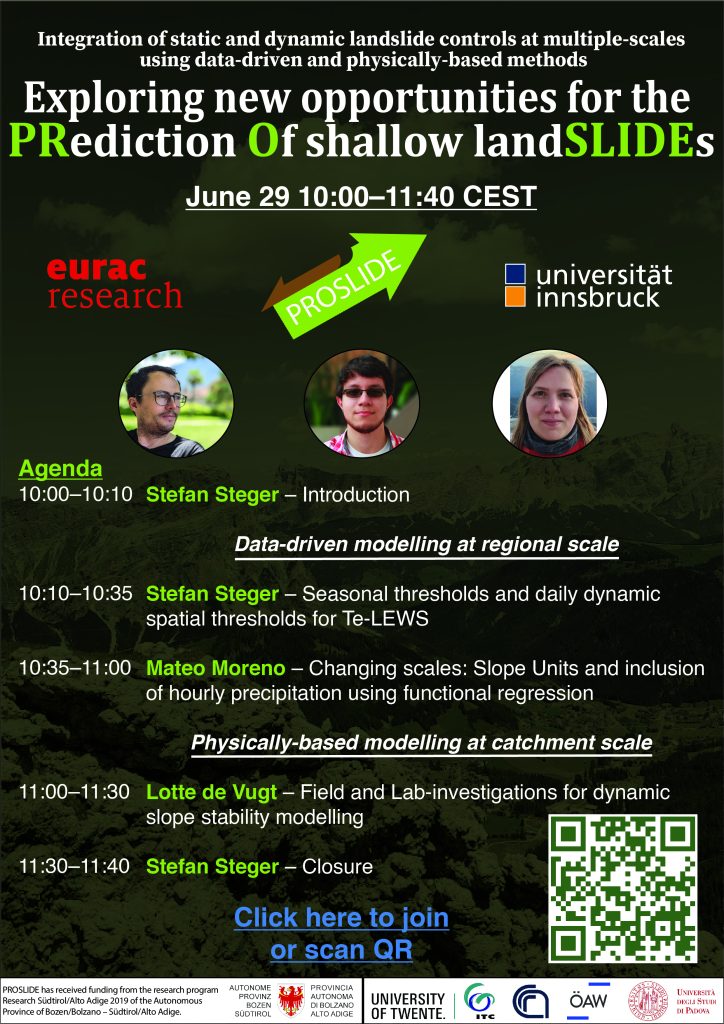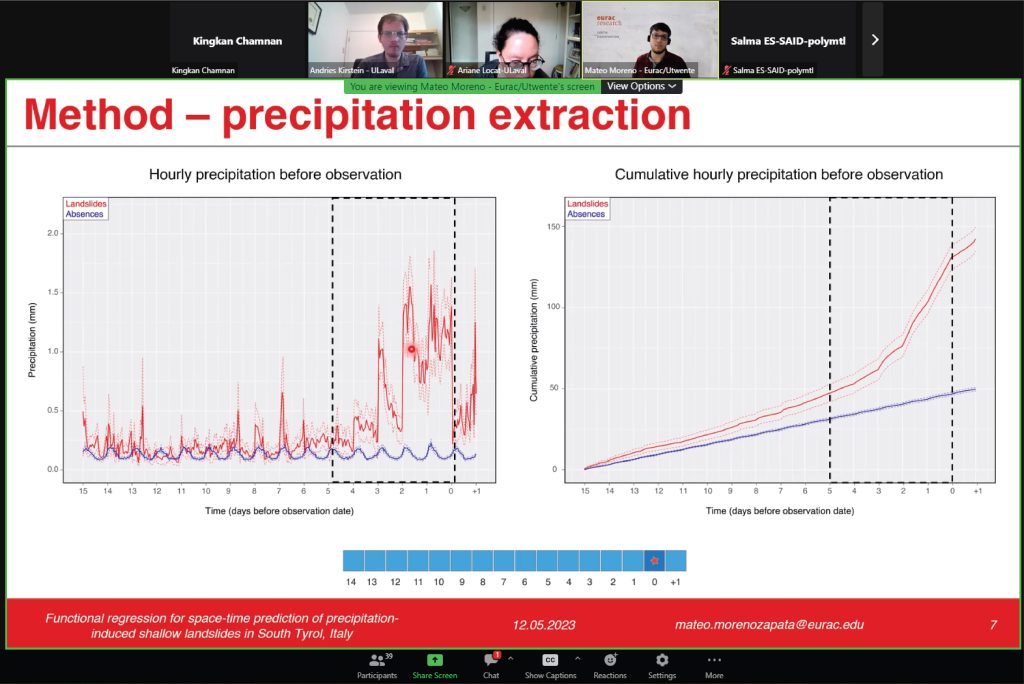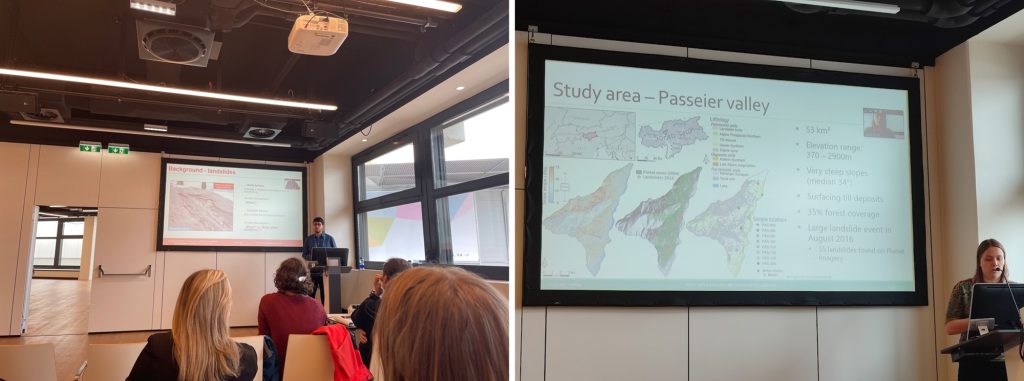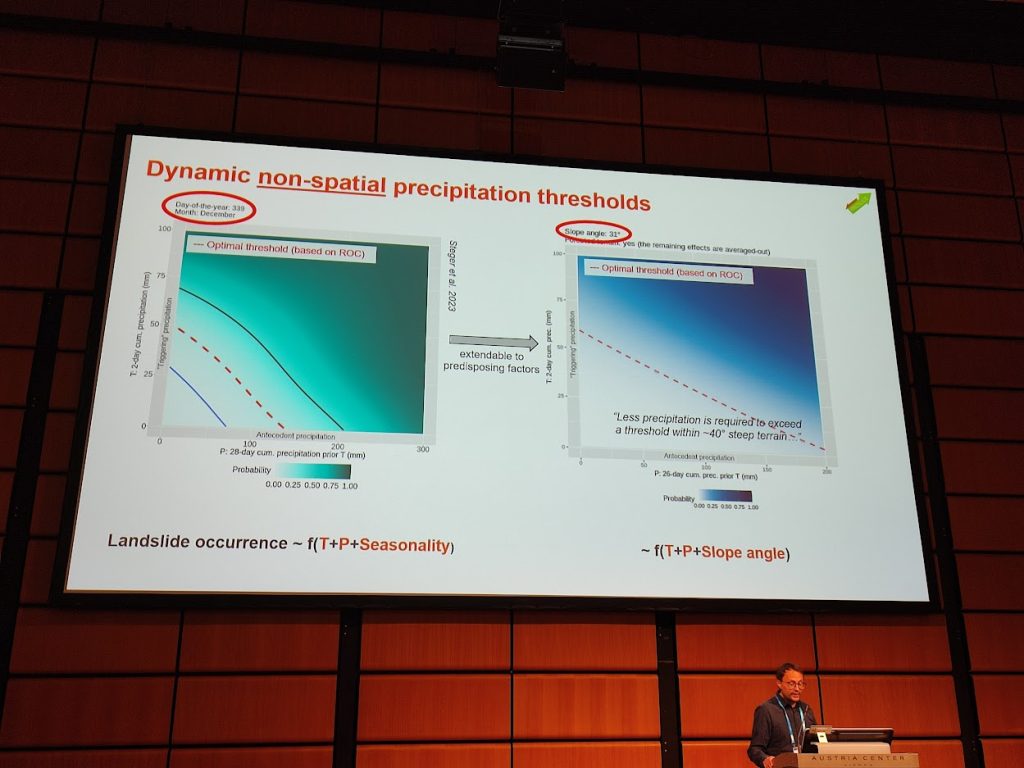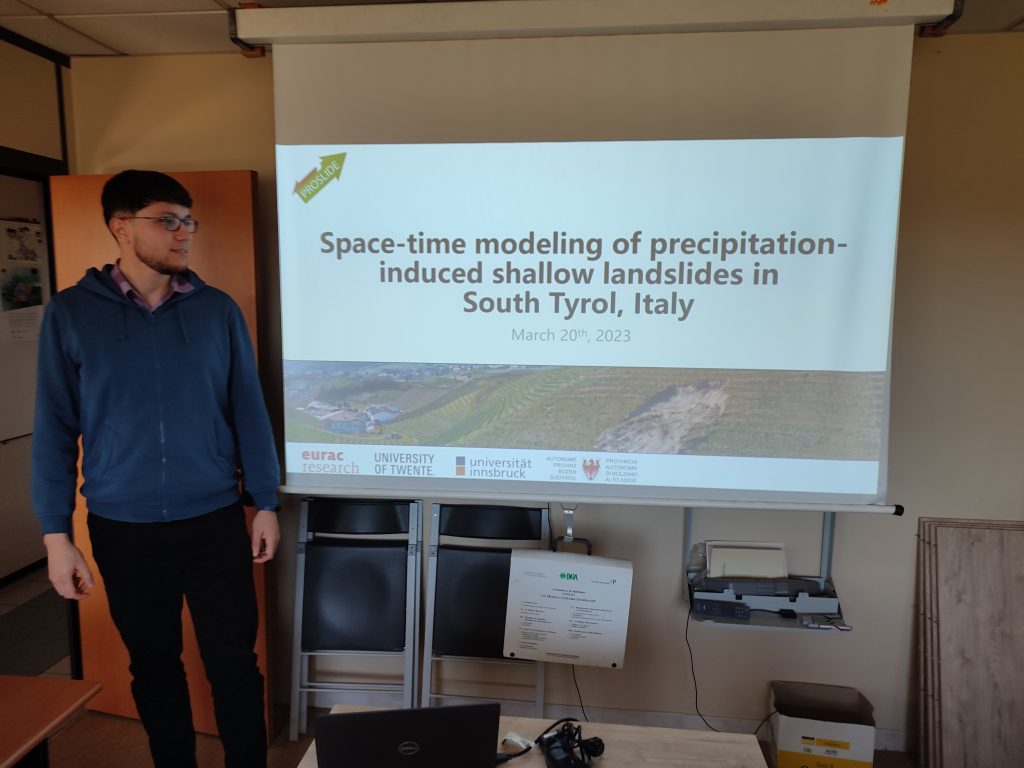We are happy to participate in the European Geosciences Union (EGU) General Assembly 2023. We are presenting three PROSLIDE contributions in the format of 10-min oral presentations as follows:
Functional regression for space-time prediction of precipitation-induced shallow landslides in South Tyrol, Italy
NH3.6 – Space and time forecasting of landslides
Thursday, April 27th, 08:45 – 8:55 CEST
Abstract here
Improving the performance of a dynamic slope stability model (TRIGRS) with integrated spatio-temporal precipitation data
NH3.6 – Space and time forecasting of landslides
Thursday, April 27th, 08:45 – 8:55 CEST
Abstract here
A data-driven approach to derive spatially explicit dynamic “thresholds” for shallow landslide occurrence in South Tyrol (Italy)
NH3.7 – Towards reliable landslide early warning systems
Thursday, April 27th, 15:15 – 15:25 CEST
Abstract here
For more details about the conference program visit CO Meeting Organizer EGU23 (copernicus.org).

